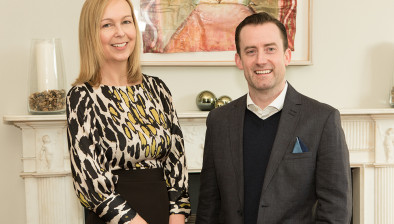High Court: Child returned to parents in England after aunt and uncle decided to keep him in Ireland

Killian Flood BL
A young child has been returned to his parents in England despite the objections of his aunt and uncle. The child had previously been transferred to their care in Ireland for a temporary period to allow his mother to overcome alcohol addiction. However, the aunt and uncle decided that it was in the child’s best interests to remain with them in Ireland.

About this case:
- Citation:[2021] IEHC 380
- Judgment:
- Court:High Court
- Judge:Ms Justice Mary Rose Gearty
Last month, the High Court acceded to an application by the father under the Hague Convention and determined that the child should be returned to his parents. In particular, the court held that the child’s habitual residence was England, that the father was lawfully exercising his rights of custody and that the child was wrongfully removed from England.
Background
The mother and father of the child were previously in a relationship. The child was born in 2019 and the couple ended their relationship at that time. However, the father lived with the mother a few days per week.
The mother had alcohol dependency issues and was unable to care for the child. Although the father initially accepted to care for the child, he quickly left the child with the boy’s grandparents. The grandparents were unable to care for the child, and so an arrangement was made for the child’s uncle (the mother’s brother) to care for the child in Ireland for a temporary six-month period.
The child was brought back to England at Christmas 2019 and spent some time overnight with the father and the mother. However, the mother fell into addiction again in January 2020 and the child was brought back to Ireland. Although the father did not know the child had been returned to Ireland, he took no steps at that time to bring him back.
Ultimately, the father sought the return of the child in June 2020 and took legal advice when the aunt and uncle refused the request. The mother also sought the return of the child from July 2020 and no longer accepted his continued stay in Ireland.
The aunt and uncle also made a guardianship application in August 2020 to the District Court. The application form stated that the father’s whereabouts were unknown, although no attempts had been made by the aunt and uncle to contact the father.
The aunt and uncle decided that the best interests of the child did not lie with returning him to England with the parents. They outlined numerous concerns about the child’s welfare with the parents, relating to proper care, the mother’s addiction issues and the father’s previous poor care of the child.
Finally, the father brought an application in the High Court seeking the return of the child to England under the Hague Convention. The aunt and uncle, as respondents, opposed the proceedings, claiming that it was appropriate for the child to remain in Ireland.
High Court
The court began by outlining the detailed factual matrix in the case and then turned to the general principles arising from Hague Convention applications. Considering the case law, the court clarified that the Hague Convention was designed to ensure the speedy return of children to their habitual residence and that an assessment of “grave risk” to a child must include detailed reasoning (see CT v PS [2021] IECA 132; Neulinger and Shuruk v Switzerland [2011] 1 FLR 122).
The court first considered whether the child was habitually resident in Ireland or England. Having regard to the fact that all the parties believed (and expressly agreed) that the transfer to Ireland would be temporary, the court said that the child was properly resident in England (K v. J [2012] IEHC 234; G v G [2015] IESC 12 applied).
The court then considered whether the father was exercising his custody rights by making the application. The court noted that the father had overnight access to the child at Christmas 2019 and that there was an agreed custody plan signed by him and the mother in August 2019. The court accepted that there was evidence that the father had interactions with the child and had taken at least a minimal part in his life.
Further, the court held that respondent’s allegations about the lack of effort by the father to access the child in Ireland was undermined by the fact that the arrangement was supposed to be temporary. As such, despite the low level of contact between father and child, the intention to have a relationship with the child was established, the court said.
The court also held that the child was retained without the consent or acquiescence of the parents from June 2020, when the respondents refused to return the child (Re H (Abduction: Acquiescence) [1998] AC 72).
The respondents had alleged that the father posed a grave risk to the child, claiming that the child was underdeveloped when he came to them and that there was a risk of neglect. The court stated that there was no expert evidence as to the nature of the child’s condition on his arrival in the state. Further, there was simply no clear evidence that the alleged deficiencies were caused by his care with his parents.
There was also no supporting evidence to allegations of violence by the father towards the mother and the father’s previous criminal convictions did not disentitle him to the orders sought, the court said. There was therefore insufficient evidence to say that the father posed a grave risk to his child.
The court rejected the respondent’s submission that the child was well-settled in Ireland, noting that concealment or subterfuge could not provide a basis for this proposition Z.D. v K.D. [2008] IEHC 176. In this regard, the court was disapproving of the District Court application in which the respondents misled the court to believe that the father was uncontactable.
Finally, considering the views of the mother, the court said it was clear that she was supportive of the father’s application and wanted her child returned to England.
Conclusion
The court ordered the child to be returned to England. The court noted that the law did not permit the removal of a child from its parents simply because those parents were less than perfect or even neglectful. The entire system was designed to ensure that children remained at home with their parents.
Despite the excellent care of the respondents, the court could not “effectively assign custody in Ireland to people who have no rights, in law, to decide where this child lives when the only two people who do have such rights both object to the child living here”.










